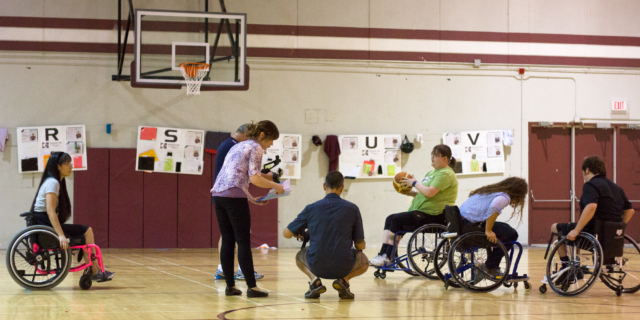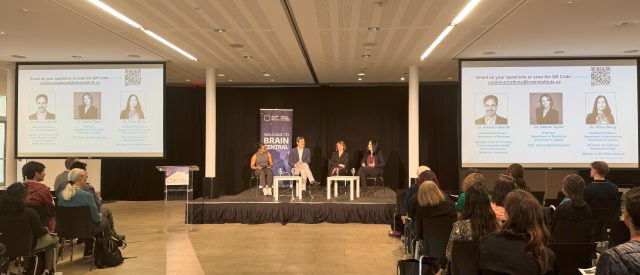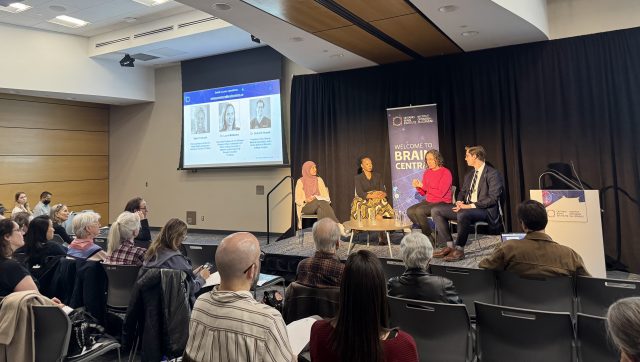No one likes to be defined by an illness, disorder or disability – even when we are a patient. Our ‘health’ is not only based on our biology, but also by our relationships with friends and family and our ability to do the things we enjoy. Researchers Drs. Peter Rosenbaum and Jan-Willem Gorter from our cerebral palsy research program (CP-NET) wrote a concept paper[1] explaining how holistic thinking towards health can create a better framework to approach childhood disability. This framework helps to identify the ability and potential in persons with disabilities like cerebral palsy so people can work with them the same way we should with anyone else.
An important concept in this framework is how we view ‘function’ as part of ‘health’. Traditionally, research and medicine focus on measuring how, in the context of ‘disability’, our various abilities, such as walking, differ from the average person. This may be helpful in defining a problem and can provide a way to measure the success of an intervention against a benchmark. However, when working with people we must remember to help the person to improve their health rather than simply aim to ‘fix’ a problem, especially when that problem cannot be fully resolved. For instance, a person with cerebral palsy might have difficulties with strength, coordination, and/or balance that keep them from playing basketball. A traditional biomedical intervention would focus on physical therapy, which may or may not be successful in resolving these mobility difficulties. However, we can reframe the focus to what someone wants to do (i.e. play basketball) rather than how (or how well) they do it (i.e. walking coordination patterns). This allows us to find alternative ways to achieve these personal goals, such as wheelchair basketball.
Alternatives like wheelchair basketball are a great way to remove barriers to having fun and playing a sport with friends. Part of being healthy is being able to do things we enjoy and having fun with family and friends. If you sprain your ankle, you would not let it keep you from getting out. You might use the support of crutches and public transit to go see a Toronto Raptors game with friends. In the same manner, someone with cerebral palsy may have balance issues that keep them from riding a bike. In this case a tricycle may be a perfect alternative. When thinking about health and what we can do, being able to do what we find fun and what we enjoy is an important part of that picture. By focusing our attention on how to do things a person enjoys, we can reframe our approach to healthy living rather than getting stuck on how to fix the underlying biological imbalance when ‘fixing’ is not realistic.
Family and friends are an important part of everyone’s lives. A holistic approach to personal health should include fostering these important relationships and social supports. Being able to take part in activities with family and friends is important to maintaining and strengthening relationships, and supports our mental and emotional well-being. We must reduce barriers to participation in activities with family and friends by being inclusive and making appropriate accommodations as needed. Where this might become counter-intuitive is when a therapy or health intervention creates barriers to making friends or dating. Sometimes, especially in adolescence, sacrificing time and energy that could be spent on therapy and interventions toward building relationships might be better for the individual. By reframing health to be focused on the outcomes of function, fun, family & friends versus fixing a biological imbalance, we can change behaviours and attitudes – of both professionals and young people with impairments – to be more person-centric and supportive.
No matter who you are, health is about more than fixing a problem. It is about seeing a person, their relationships, their interests, and their strengths and abilities as part of an interconnected web. This holistic International Classification of Functioning, Disability and Health (ICF)/F-words framework is a great way to flip the conversation from focusing on a disease or disorder to focusing on the person. This shift to a new way of thinking and addressing a barrier is much needed, not only for ourselves but also for others to see people living with disabilities in a different light.
Learn more about how these concepts are being used to reframe how we view and support those with childhood disability, including cerebral palsy through CanChild’s Knowledge Hub. You can also watch CP-NET program’s compelling video created in partnership with youth and young people or join CP-NET’s webinar on the F-words this Thursday at noon.
[1] Rosenbaum and Gorter (2012). “The ‘F-words’ in Childhood Disability: I swear this is how we should think!” Child: Care, Health and Development, 38, 4, 457–463.



